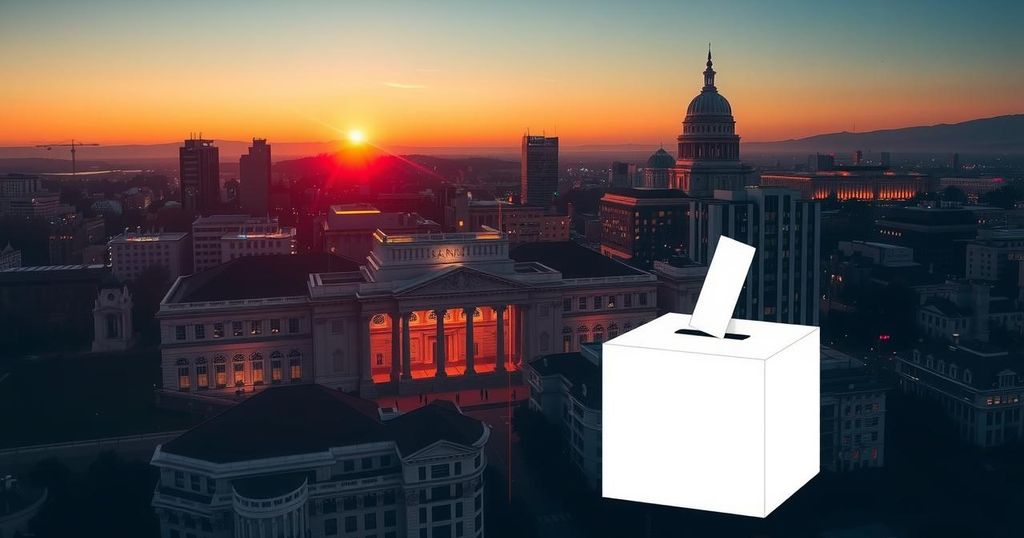Ecuador’s presidential election concluded with incumbent Daniel Noboa favored to win over 50 percent of the vote, possibly averting a runoff. Nearly 14 million voters participated amidst violence and heightened security, reflecting a nation struggling with crime and economic turmoil. While Noboa has implemented strong military measures against drug-related violence, the electoral process faces serious safety concerns following previous political assassinations.
Polling closed for Ecuador’s presidential election on a somber note, with early exit polls indicating that incumbent President Daniel Noboa is likely to secure over 50 percent of the vote. This result could preclude the need for a runoff against his leftist opponent, Luisa Gonzalez, who garnered approximately 42 percent. However, the official vote count will take several hours to finalize, as nearly 14 million Ecuadorians voted amidst heightened security concerns.
The election takes place within a backdrop of escalating violence that has plagued Ecuador over recent years, transforming it from one of Latin America’s safest nations to one of its most dangerous. American drug cartel activity and internal strife have compounded economic troubles, leading citizens like businessman Luis Jaime Torres to plead for immediate solutions to the country’s dire circumstances.
Heavily armed military personnel were stationed at polling centers across the country due to fears of “serious threats” to democracy and election integrity. While there were only a few minor alcohol-related infractions reported prior to the election, the risks remain heightened, considering the assassination of a major candidate during the last election cycle.
Gonzalez expressed her own apprehensions regarding the violence, indicating that she had received threats against her life. Despite these fears, she emphasized the imperative to aim for a transformative leadership. She must exceed exit poll projections to unseat Noboa, who is capitalizing on a vibrant social media strategy to promote his candidacy and hardline crime policies.
Noboa, the 37-year-old son of a banana tycoon and one of the youngest leaders in the world, has employed strong military responses to control violence influenced by the burgeoning drug trade. This trade has turned Ecuador into a violent battleground as cocaine cartels adjust to growing global markets.
His administration has employed a broad spectrum of emergency measures, including military patrols and the closure of borders with Colombia and Peru during the election. However, critics are raising alarms about potential human rights violations linked to these military measures and the overall decline of civil order in Ecuador.
Political analysts warn that the current situation reflects the gravest crisis in Ecuador since the restoration of democracy nearly 50 years ago. Economic impacts of this unrest have been profound, with declines in tourism and investment exacerbated by anticipated increases in unemployment.
The continued downslide of security in Ecuador is entwined with global drug trafficking dynamics, particularly the shift in markets from North America to Europe and beyond. This shift has brought about record increases in crime, causing a public outcry for government intervention and reform. The presidential elections occur amid fears and threats towards candidates, demonstrating the dangerous political climate that voters must navigate.
The presidential election situation in Ecuador serves as a critical reflection of the country’s broader socio-economic issues and security challenges. With Daniel Noboa likely to retain power, questions surrounding his methods of governance, particularly his militarized response to crime, will remain critical. As Ecuadorians continue to seek stability and growth, the implications of these elections will resonate deeply within their societal frameworks.
Original Source: www.thedailymail.net






